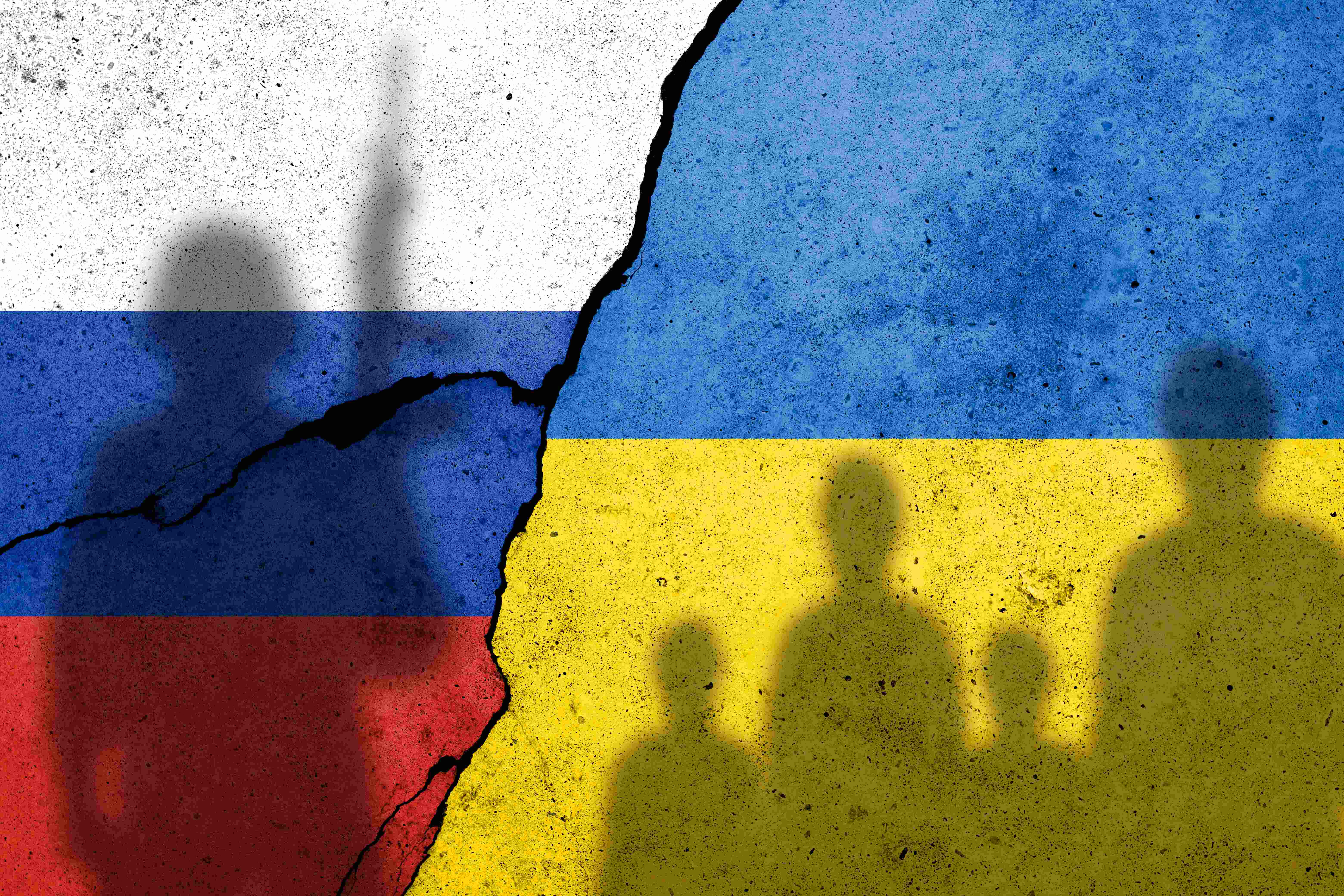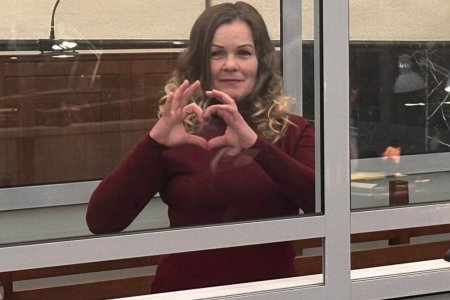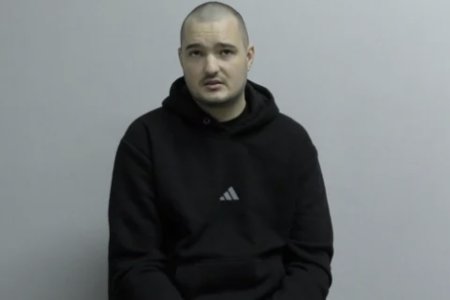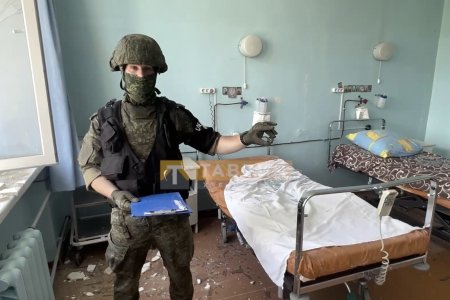
What evidence do they need?
— ... They came to my house and said I was cooperating with the SBU, with the Armed Forces of Ukraine, — recalls Oleh (name changed), whom the Russians threw into the torture chamber in August 2022. — They took me for my pro-Ukrainian views; I did not hide them and called things by their real names. There were searches at home; they searched for means of communication, intelligence equipment, a quadcopter, weapons…
The man was held at the infamous Vovchansk Aggregate Plant. Many civilians from the then-occupied region passed through its torture chambers. We talked a lot about the Vovchansk Aggregate Plant. Here, in the first year of the war, the occupiers set up a real concentration camp: they held kidnapped Ukrainians — former ATO members, Ukrainian law enforcement officers, relatives of those who serve or once served in the Armed Forces of Ukraine, and later everyone who the occupiers did not like for whatever reason.
There were cases when civilians were kidnapped to get money or “squeeze” business. Sometimes, it was difficult to understand the logic of the occupiers. Locals said that a “cold glance” at a checkpoint was enough.
— The interrogations lasted six or seven hours, — says Oleh. — Although it is difficult to call it interrogation. During interrogations, people talk, but there was no time for conversation: they tortured. I remained in the Aggregate Plant until de-occupation. They were preparing to take me to Russia… A little more, and I would have been taken away. They said that I would live out my life there or be shot.
A guard saved me. When ours were already advancing, and the Russians didn’t feel like supervising the prisoners, one of the LPRs simply opened the cell in which Oleh and several other prisoners were being held.
— Immediately after the de-occupation, the police conducted a house-to-house search and checked my documents. At that time, I didn’t have a passport or any ID as the Russians had confiscated everything… I told our police why I didn’t have documents, that I was in a concentration camp, in captivity. I wrote a statement of an explanation and then wrote a statement to the police again. It was the initiative of the law enforcement officers, and the investigator came. They conducted a playback in the concentration camp. There was a video recording, and I explained in detail on camera what and how it was happening. At that time, the police opened proceedings for many people.
For a long time, Oleh didn’t even try to get the official status of “a person who was deprived of personal freedom as a result of armed aggression against Ukraine”. However, he actively cooperated with law enforcement agencies. He says that he was too busy. In September of last year, for the first time, he contacted the Commission, which establishes the deprivation of liberty. He did not receive any answer. He managed to find out something only after the lawyer intervened. To his surprise, Oleh discovered his status as the aggregate plant prisoner was “denied”. For what reasons — it is unknown. The Commission does not explain its decision. Now Oleh asks himself the question: What should he do? Maybe next time, I will need to bring some more documentation. What if it affects the collegial decision?
— What other documents do I need? What evidence? — Oleh is surprised. — There were witness statements... Do I need to go to Russia and get confirmation there to prove the fact of captivity?
The fact of captivity is not proven
In the practice of KHPG lawyer Serhii Proidak, there are many such cases when a person was in captivity, but the Commission refused to grant him the appropriate status:
— In general, every second person receives a refusal. When people contact us, they usually have already tried to do it themselves: they downloaded an application from the website, filled it out, added the circumstances of how and when they were deprived of their liberty, added an extract about the criminal offense, and sent it. But this is not enough for the commission.
The chairman of the board of the Association of Relatives of Kremlin Political Prisoners, Ihor Kotelyanets, also recently announced information about the large number of refusals when former civilian prisoners applied to the Commission:
“According to the data on civilians published in 2024, the Commission refused approximately 30% of applications. The most common reason for refusal to establish the fact of deprivation of personal liberty is an insufficient number of votes of the Commission members or an insufficient number of documents provided by the applicant. In some cases, the commission may not notify the applicant of its decision at all. At the same time, those who freed themselves outside the exchanges received the refusal to establish the fact of illegal imprisonment”.
There are many such self-released people.
— The man was in the occupied Kharkiv region and wanted to leave through Russia and Europe, — says Serhii Proidak about one of his clients. “The Russians detained him, first “interrogated” him at the border, then brought him back to his native village. They searched his house. They “hung” some articles on him and took him to Russia. He served a year and eight in a pre-trial detention center there. After that, he was simply taken to the border with Sumy. Without exchanges, without anything.”
The chance of obtaining status in such a case is minimal. We explain why.
What is wrong with the law?
According to the law, prisoners of war and civilians imprisoned by the enemy can obtain the status of a person who was deprived of personal freedom as a result of armed aggression against Ukraine. It is easier for a military person to establish the fact of captivity than for civilians. There are several additional requirements for why and how they were imprisoned:
a) in connection with the implementation of… activities aimed at expressing views, values, and positions on the defense of state sovereignty, territorial integrity, and inviolability of Ukraine, democratic constitutional order, and other national interests of Ukraine, as well as for professional, public, political or human rights activities related to the defense of state sovereignty, independence, territorial integrity and inviolability of Ukraine, democratic constitutional order and other national interests of Ukraine, protection of the rights and freedoms of persons deprived of personal liberty due to such activities, if there were grounds to believe that the implementation of such activities posed a real or potential danger of unlawful persecution of a person by the aggressor state, its bodies, units, formations, other entities;
b) in connection with illegal actions of the aggressor state, its bodies, units, formations, and other entities with the explicit or hidden purpose of inciting Ukraine, another state, state body, or organization, including international, legal, or private individuals to act or refrain from acting as a condition for the release of a citizen of Ukraine.
In short, for a civilian detained by the Russians to receive “status”, they must either be an obviously pro-Ukrainian activist, civil servant, or journalist, or the enemies should have taken him as a “hostage”.
The problem is that many residents of the occupied territories have passed through the Russian torture chambers. Not all of them carried out “activities aimed at expressing views, values, positions on defending state sovereignty, territorial integrity” or were activists, human rights defenders, journalists, and civil servants. Considering that, according to Russian state ideology, the Ukrainian nation as such is subject to eradication, one can end up in the basement for the Ukrainian language, unwillingness to obtain Russian citizenship, or for no reason at all — “for deterrence”. So, what is a sufficient reason for imprisonment and torture for the occupiers does not, for the most part, become a good reason for Ukraine to grant the status of a person in respect of whom the fact of deprivation of liberty has been established.
Such people could fall under another point of the law — almost all civilians abducted by Russia can be considered hostages — people who were taken prisoner “to incite Ukraine to certain actions”. But lawyers say that there are problems with this, too.
At the end of last year, the Association of Relatives of Political Prisoners of the Kremlin prepared an Expert Analytical Review and Recommendations on Proving the Fact of Illegal Deprivation of Personal Liberty of Civilians of Ukraine as a Result of the Armed Aggression of the Russian Federation against Ukraine. In this document, human rights activists drew attention, among other things, to the fact that taking a person hostage presupposes the presence of a particular goal on the part of the enemy state. A former prisoner — especially one released bypassing exchanges — is simply unable to prove this goal: “A person who was illegally detained and was released not as a result of mutual releases cannot in any way substantiate, let alone document, the hidden purpose of the Russian Federation in taking them hostage. The demand for release is made — if it is made — by the state of Ukraine, third countries, organizations, or individuals and, in exceptional cases, may be communicated to the prisoner. Placing the burden of proof that he was a hostage on the applicant is unfounded and excessive since the hostage himself could not have committed any actions that could have motivated the aggressor to commit a crime and objectively could not have known the reasons for his imprisonment.”
“The law needs to be changed,” says Serhii Proidak. “It is discriminatory. People were put in the same conditions, but some could receive the status while others could not. If you are already dividing these people — civil servants and ordinary civilians who were taken prisoner — well, fine, divide them, don’t pay them the same money… But establish the very fact of being in captivity!
Ihor Kotelyanets shares the same opinion: “We need to expand national legislation and recognize victims and survivors of illegal detention. The term “involuntary imprisonment” includes not only those who carried out some public or political activity but also any people who may not have been engaged in any public activity. They must be recognized as victims of persecution, and the fact of illegal imprisonment must be established so that these people can access state assistance.”
What’s wrong with the commission?
The fact of illegal imprisonment must be established by a special interdepartmental collegial body with a very long name — the Commission on Establishing the Fact of Deprivation of a Person of Personal Liberty as a Result of Armed Aggression against Ukraine. Initially, it worked under the Ministry of Reintegration, and after its liquidation, it “moved” to the Ministry of Community Development and Infrastructure of Ukraine.
According to the Regulations of the Commission, applications and materials must be considered to confirm the deprivation of liberty (certificates, information, other documents). The Commission is composed of:
- a representative appointed by the President of Ukraine;
- one representative from each of the Ministry of Development, the Ministry of Foreign Affairs, the Ministry of Justice, the Ministry of Defense, the Ministry of Internal Affairs, the Ministry of Social Policy, the Ministry of Health, the Commissioner for Human Rights of the Verkhovna Rada of Ukraine, the Office of the Prosecutor General, the Security Service of Ukraine, Foreign Intelligence Service, Representative Office of the President of Ukraine in the Autonomous Republic of Crimea;
- no more than five representatives from public associations, including international ones, that carry out activities in the field of human rights protection and care for persons deprived of personal freedom as a result of armed aggression against Ukraine, who document the facts and crimes of armed aggression against Ukraine and conduct search activities.
Like the law, the Commission’s work has caused many complaints from human rights activists. Ihor Kotelyanets worked in the Commission from 2019 to 2022. So he knows the process from the inside.
“Real people are working there who are not necessarily involved in the topic of illegal imprisonment of Ukrainian citizens in their daily lives. They can represent different ministries and deal with different tasks. Therefore, they do not always understand how to decide whether to confirm the fact of illegal detention,” — he wrote in November last year.
“The Commission is 19 people who communicate and make a decision. As a result, none of them is responsible for it because it results from a discussion of a collegial body. Moreover, this Commission does not even explain the reasons for the refusal. This work cannot be collegial. There should be a responsible official and a state body,” says Mykhailo Savva, a Center for Civil Liberties Expert Council member.
Another problem is the lack of transparency in the Commission’s activities and communication between it and former prisoners. There is simply no comprehensive list of documents required to obtain the status of a person deprived of personal freedom as a result of military aggression. The main document that a civilian must provide to the Commission is an extract from the Unified register of pre-trial investigations, which confirms the opening of criminal proceedings. Nothing more specific: simply “documents that will confirm the given circumstances.” A person submits everything that, in their opinion, will help prove the fact of captivity. And when they receive a refusal, they must guess what was insufficient for a favorable decision.
— The man was given an official answer: “You were refused because your question did not receive the appropriate number of votes.” And they refer to the law article, which lists the grounds on which the status is granted, — says Serhii Proidak. — I believe it is legally unclear. When a person receives such an answer, neither they nor I, as a lawyer, understand where to turn next. Should I reapply or add more documents confirming the captivity that were not submitted the first time?
After captivity, a person is not in the best condition — both physically and psychologically. And the need to humiliatingly prove again and again that this captivity took place is not something everyone can handle. People give up and remain without status and, therefore, without help and rehabilitation. One of the clients of the KHPG, who went through the Russian torture chamber during the occupation of the Kharkiv region, died without waiting for a positive answer from the Commission.



